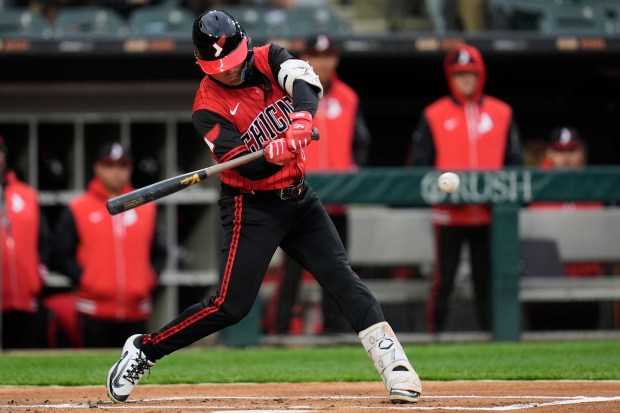Aldermen will once again delay an expected vote Monday on whether Chicago police should get the power to implement “snap” curfews to try to force large youth gatherings to break up.
The City Council’s Public Safety Committee had been expected to vote on the measure at its afternoon meeting, but Ald. Brian Hopkins said early in the day it would not go forward. Too many aldermen planned to attend Rep. Jan Schakowsky’s afternoon announcement, where she said she would not seek re-election, he said.
But Hopkins touted listening sessions that he attended with teens and another where Mayor Brandon Johnson listened to Streeterville residents as the downtown alderman promised to push the measure forward before late May.
The clock is ticking for supporters of the curfew measure to pass something, because they see it as important to give police added power to deal with the takeovers that tend to be more common during warmer summer months.
And while he defended the need for new curfew powers, Hopkins, 2nd, echoed Johnson in calling for more money to be spent on young people. He called for park field houses to be opened later into the night and throughout weekends.
“What we need is not only programs for youth, but activities that are productive and that are an alternative to engaging in the kind of lawless teen takeovers that’s the problem,” Hopkins said.
Hopkins initially proposed a downtown 8 p.m. teen curfew — two hours earlier than Chicago’s 10 p.m. citywide teen curfew — last year and again in March after two large teen gatherings in his ward ended in shootings.
He is now proposing an ordinance that would grant police Superintendent Larry Snelling and Deputy Mayor of Public Safety Garien Gatewood the power to declare curfews together throughout the city as so-called “teen trend” gatherings pop up or are being planned.
He called off a vote last week in the committee, where the final tally was expected to be close. And backed off a move to get the full council to consider his first version last month to instead push forward his updated curfew effort.
Johnson opposed the initial measure, but has not taken a clear stance on the curfew power aldermen might soon give his administration. Asked about the expected vote Monday morning, he promised to “do what works” and said “we cannot succumb to elements or practices that just don’t prove to be effective.”
“There is no empirical evidence that lowering the curfew is going to reduce or eliminate those types of incidents,” Johnson said. “We want to prevent these types of occurrences from happening. And everything we do on the front end, we don’t have to scramble on the back end.”
Speaking alongside Hopkins Monday in praise of the ongoing discussions with residents and young people alike, state Rep. La Shawn Ford dodged when asked if he supported the current ordinance.
“I support the idea of coming up with a solution… they still got to land the plane,” he said. “You cannot not do anything.”
Ford added that he would like to see young Chicagoans be given free access to programs in the city’s parks. Cook County Commissioner Bill Lowry said government partners are willing to come in to offer everything from theater classes to dentistry, but added young people get should get to help decide what opportunities they get.
“Our youth don’t want to be told what they should know. They want to be able to tell us what we need to know,” Lowry said. “But as we go forward with this initiative, we cannot have trends. The trends must end.”
Groups like the American Civil Liberties Union of Illinois and anti-violence organization GoodKids MadCity have criticized the proposed curfew power as an overly strong and potentially illegal crackdown. Johnson too has alluded to legal issues.
In a letter sent to aldermen, the City Council’s Office of Financial Analysis said Chicago “can anticipate potential litigation costs” because ACLU Illinois shared a letter signed by 20 additional civil liberties groups suggesting potential “intent to sue over proposed curfew.”
ACLU Illinois spokesperson Ed Yohnka last week expressed concern police could use the temporary curfew power to crack down on protesters.
“Could this be abused in a way that could curtail that right? Absolutely,” he said. “And then even more broadly than that, young people have the right to be in every part of the city.”
Hopkins on Monday brushed those concerns aside and called lawyers opposed to the measure “anti-police political activists.”
“There is absolutely zero concern about the constitutional validity of this ordinance by every one of the attorneys that was involved in it,” he said.



